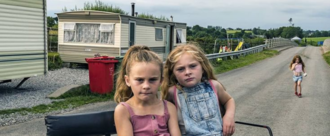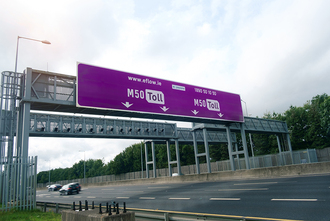- Featured
- Animal Rights
- Anti-racism
- Arts & Culture
- Children
- Climate
- Corporate accountability
- Crime
- Disability rights
- Economic
- Education
- Environment
- Food and Sustainable Production
- Gender Equality
- Governance and Transparency
- Health
- Housing
- LGBT Rights
- Mental health
- Northern Ireland
- Planning
- Privacy and Data Protection
- Rural Inequality
- Social Justice
- Trade
- Transport and Infrastructure
- Workers' Rights
- More
-
Lean le Gaeilge ar RTÉ/Continue with Gaeilge on RTÉTá an Ghaeilge taréis a bheith an-feiceálach ar RTÉ le linn Seachtain na Gaeilge. Bheadh sé iontach dá gcloisfeadh agus dá bhfeicfeadh muintir na hÉireann an Ghaeilge go laethúil mar chuid lárnach de chláracha de gach saghas ar stáisiúin raidio agus teilifíse RTÉ. The Irish language has been freely used by presenters on our main national broadcaster during Seachtain na Gaeilge. It would be uplifting and in-keeping with our rights as citizens if our national radio and TV channels featured our national language used freely and naturally to indicate a truly bilingual broadcasting environment.13 of 100 SignaturesCreated by Seán Ó hArgáin
-
Refuse GAA request for additional development on public land at Pairc Ui ChaoimhThe GAA have already been sold public land for development which included conditions and contributions that haven't been fully met by the GAA including providing public lighting along The Marina. This park was intended be kept as a green space including a children's play area which has also not materialised. There has been considerable loss of habitat already due to development and building further on public land should be outright refused. Surrounding areas suffer greatly from significant traffic and illegal parking on match days, however provision of 124 extra spaces should not and will not be for public use during match days. Offering alternatives to people driving to the stadium should be the first priority. Solutions include better walking and cycling routes on match days such as road closures for non-locals and/or a GAA funded shuttle bus from the city centre. As the stadium is a 30 minute walk from the city there should be no extra motor vehicles being diverted towards the area. A "fan zone" with food trucks can be setup on the existing parking and paved space that exists on the Eastern side of the stadium should it be needed.18 of 100 SignaturesCreated by Harry Murphy
-
Reduce the rate of infant mortality in the Traveller communityThe rate of infant mortality in the Traveller community is 3 times higher than the settled population. For a first world country, there should not be such a large gap in these rates between a minority group and the rest of the population. The government has known about this issue for more than 13 years and yet has not done anything in order to reduce the rate. Please sign this petition so that we can bring around change.39 of 100 SignaturesCreated by Jessica Batten
-
Rise Up Against Men's Violence Towards WomenViolence is happening everywhere and all women are at risk. It's happening on the street, in homes, in workplaces, in entertainment, and in intimate relationships.4,777 of 5,000 SignaturesCreated by SiSi, a collective of intimate abuse survivors
-
Improving support for at home carers during COVID-19The aim of this petition is to highlight that there is a need for more support for at home carers. These are people who have been caring around the clock to support a loved one who may be ill, have additional needs or are elderly during the COVID-19 pandemic. Although they do receive carers allowance which can range from €219 - €385.50 and additional monies depending on how may dependable children there is. This petition would be used to highlight not only do they need financial support but they also need a form of relief from the general day to day strenuous tasks they encounter not only physically but also emotionally. Since the start of the pandemic last March the supports they heavily relied on for relief were reduced or simply taken away. They had and still have very little relief as many of the people they are caring for would be very high risk if they contracted COVID-19. With the help of these signatures it will highlight that more support needs to be given to carers and will hopefully facilitate in implementing a change that will ultimately support these people more effectively and efficiently.106 of 200 SignaturesCreated by Helen McNally
-
Petition for an All-Ireland Referendum on Irish UnityThis campaign is being orchestrated by the the 1916 Societies, who are an Irish separatist movement who believe the people of Ireland have the right to determine their own future. For more information on our campaign visit our website: 1916Societies.ie856 of 1,000 SignaturesCreated by Seán O'Brolcháin
-
Bring in Safe Access Zones Around Irish Hospitals and Healthcare CentresAnti-choice and religious groups are staging protests around Limerick maternity hospital and other health centres around the country. This is distressing for pregnant people and their families, for health care workers, and local residents. While everyone has the right to protest, they do not have the right to a captive audience. We are calling on government to bring in legislation to create safe zones around health centres in which protest of any kind in relation to abortion is forbidden2,144 of 3,000 SignaturesCreated by Together For Safety
-
Support Structures For Victims of AbuseAmy Barrett`s father, Jerry O'Keeffe, was jailed for 10 years in November 2017. Jerry O Keeffe was charged with three charges of rape, five charges of indecent assault and one charge of sexual assault of his daughters on dates between January 1980 and March 1987. The trial brought the horrors of the sexual abuse rushing back to Amy and with no professional services to help her deal with the aftershocks Amy found herself in a very dark place. During the court case, the gardaí, her solicitors and the court service supported her and guided her through until her father, Jerry O’Keefe, was sentenced to 10 years in prison in 2017. But once the trial ended, all State support vanished. Amy is seeking your support, calling on Government to fund better support mechanisms for victims of crime. Many believe victims automatically receive care plans and psychological support post-trial. Amazingly this is not the case. The state provides more support structures for the perpetrators of abuse than to the victims of abuse. As prisoners in Irish jails perpetrators of crime have care plans and psychological support. Although this is welcome and hopefully prevents those abusers from re offending what do the abuse victims receive... nothing....where is the support for victims? Due to current COVID 19 restrictions rape and murder cases are being delayed by as much as two years due to Covid-19. Many believe these delays could be devastating to victims and may result in many victims withdrawing their statements. Ireland has a long horrendous record of abuse, sexual abuse, child abuse yet nothing has changed for the victims. Please help Amy secure what should be a fundamental right of victims508 of 600 SignaturesCreated by Amy Barrett
-
Abolish The M50 Toll ExtortionConstruction began on the bridge in 1987 and built by National Toll Roads (NTR plc is a private company). They built 3.2 km of road way linking the N3 and N4 including the bridge. In return for building and maintaining the bridge NTR plc received the rights to operate It as a toll Bridge for 30 years. (1990-2020) Motorists have been charged daily for the use of this essential route for the last thirty years. In recent years and since the opening of the e-flow system, the state has allowed taxpayers to be charged 50 times the original toll fee for unpaid journeys even through a recession resulting in sherrifs being awarded court orders to break into citizens homes and hold their property to ransom. The 30 year contract was finished in 2020 sign this petition to move to abolish this extortion. The Irish people pay through the teeth in terms of taxes and recieve next to nothing for their contribution. Help us raise awareness and end this additional austerity and sign this petition.79 of 100 SignaturesCreated by Michael Doyle
-
Extend the Lifetime of the Mother and Baby Homes CommissionNatural justice will not be served if the Commission of Investigation into Mother and Baby homes is allowed to close down with so many unanswered questions, not least about its own functioning and some of the conclusions in its report. A legal enquiry that publishes conclusions and testimonies that are disputed by those who gave them and then destroys evidence cannot provide closure. There are so many unanswered questions about the manner in which this commission was run and the way it reached its conclusions that it must be held to account. This commission must not be added to the list of inquiries that have added insult to the injuries of survivors and helped mask the truth. Theatening that an extension will delay compensation for survivors is not germane. Survivors want the truth. We ALL want the truth.195 of 200 SignaturesCreated by John Hurley
-
Accreditation for our educationSNAs are a vital part of every classroom around the country. We want this course accredited to ensure professional development for SNAs around the country.2,980 of 3,000 SignaturesCreated by Linda O'Sullivan
-
Don't allow Texaco to Use Our ChildrenCourts in Ecuador found that Chevron-Texaco had deliberately dumped 16 billion gallons of cancer-causing toxic oil waste into the rainforest, causing a cancer epidemic that has killed thousands and has decimated five indigenous nations who are teetering on the brink of extinction. They inflicted death and devastation on communities of people and wildlife that no fair-minded Irish person would ever tolerate. “The oil companies came to these pristine forests, backed by our own government. They took what they wanted and wiped-out cultures, completely disregarded the Indigenous people, killed animals and ruined sacred places. In the end, the people couldn’t do anything about it because they couldn’t speak the language of the people destroying their lives! The same destruction is still going on to this day.” Nina Gualinga, Indigenous campaigner for Ecuador Amazon Watch. Nina Gualinga, an indigenous environmental and human rights warrior from Ecuador. https://amazonwatch.org/news/2016/0715-toxic-tour Then, they fled Ecuador after a court had ordered them to pay $US9.5 billion in compensation to local communities. Ever since, they have threatened the communities they violated with a ‘lifetime of litigation’ unless they dropped the case. They have attacked their victims with retaliatory lawsuits. In the face of their inexcusable and catastrophic impact on the planet, fossil fuel companies like Chevron-Texaco are desperate for a ‘social-licence’ to operate. In parallel with their human-rights abuses in the Ecuadorian Amazon, Texaco were cynically running a ‘Children’s Art Competition’ here in Ireland while at the same time they were destroying children’s lives in the Amazon. The legacy of that destruction continues to this day. There can be no place for fossil fuel companies like Texaco in Children’s Art or Sports in Ireland. Join the growing number of major arts institutions and museums around the world who have severed their ties with major oil companies like Texaco.121 of 200 SignaturesCreated by Just Forests



.png)







